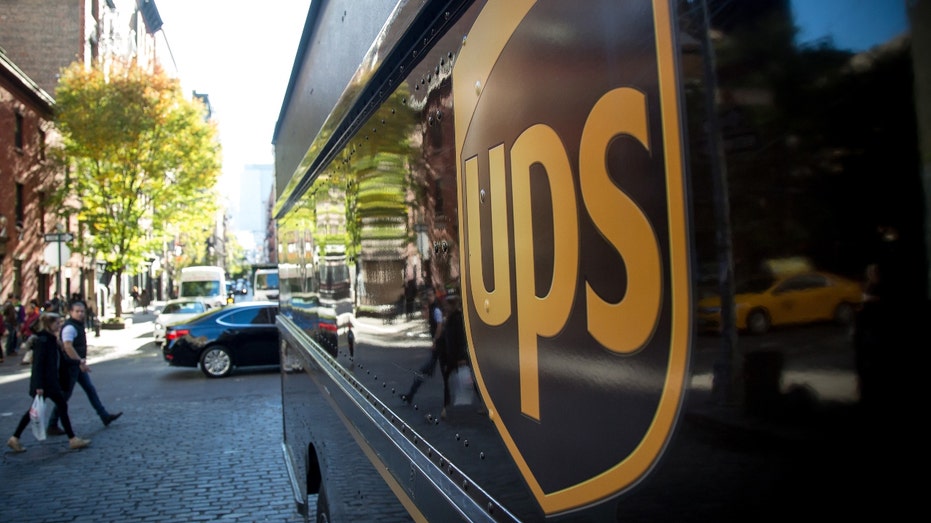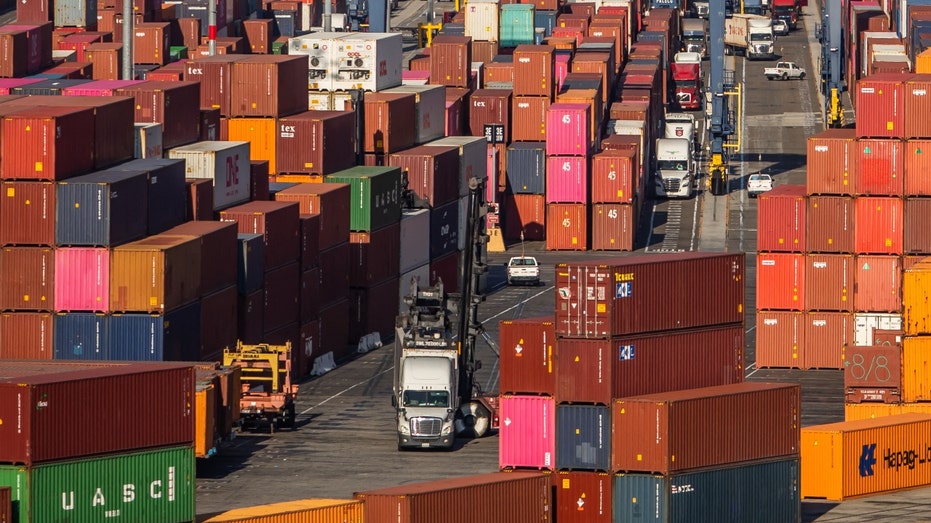National strike threats loom as labor unions become more emboldened
Despite declining membership, unions are leveraging the tight labor market
Possible rail strike poses new issues for supply chain
Market Gauge Group managing director Michele Schneider and Fox News contributor Jonathan Hoenig discuss the possible impacts of a nationwide rail strike and the slip in bond yields ahead of key inflation reports.
Labor unions and organizers feel more empowered due to the tight labor market, leveraging worker shortages to gain new ground in major corporations despite an overall decline in union membership.
While Amazon warehouse workers and Starbucks baristas grabbed early headlines for unionizing, the established big guns are threatening nationwide strikes that could do untold damage to the already-fragile supply chain and the broader economy.
The most imminent threat – a freight railroad strike – was averted after companies and union negotiators reached a tentative agreement, the Biden administration announced Thursday morning.
"These rail workers will get better pay, improved working conditions, and peace of mind around their health care costs: all hard-earned," President Biden said in a statement. "The agreement is also a victory for railway companies who will be able to retain and recruit more workers for an industry that will continue to be part of the backbone of the American economy for decades to come."

Major unions representing rail workers are threatening to strike if railroad companies do not agree to their demands for better working conditions by midnight Friday. (AP Photo/Matthew Brown, File / AP Newsroom)
According to the Association of American Railroads (AAR), a shutdown would be absolutely devastating to the economy, costing an estimated $2 billion per day and kneecapping an already fragile supply chain while hurting businesses and consumers alike.
RAILROAD UNION VOTES TO AUTHORIZE STRIKE THAT COULD HAMMER ECONOMY
Still, another union battle is brewing that could also severely impact the economy.
The Teamsters have already started rattling the United Parcel Service with threats of a strike ahead of contract negotiations set for next year.

The Teamsters union representing UPS employees has threatened to strike next year if the shipping giant does not agree to new contract terms. (Michael Nagle/Bloomberg via Getty Images / Getty Images)
"Our union is resolved to win the best contract for UPS members and to reset the standards for wages and benefits in this industry by August 1, 2023. We won’t extend negotiations by a single day. We’ll either have a signed agreement that day or be hitting the pavement," Teamsters president Sean O'Brien said in a statement kicking off the union's contract fight last month.
HOW FORCED UNIONISM HURT STATES DURING COVID
If workers at the world's largest package carrier walk off the job, it would be the largest strike in American history and impact nearly every household in the U.S., according to a CBS News report.
UPS drivers have not picketed since the 1990s, but are now flexing their muscles in the tight post-COVID labor market with support from the Biden administration.

Labor agreements were blamed for contributing to the disastrous logjams that occurred at several U.S. ports last year. (Apu Gomes/AFP via Getty Images / Getty Images)
Several experts warned last year that an increase in union strikes, regulations and sweetheart deals would likely worsen the supply chain crisis as big labor seeks to leverage the ongoing worker shortages. At the time, labor agreements were blamed for contributing to the disastrous logjams at several U.S. ports.
GET FOX BUSINESS ON THE GO BY CLICKING HERE
"The union officials are going to be more aggressive because the National Labor Relations Board is under control, the Department of Labor is under control, the Department of Justice is under control, and you have a president — when it comes back to the ports — who probably will not exercise executive authority and implement Taft-Hartley," Mark Mix, president of National Right to Work, told FOX Business. "So I think it's emboldened union officials."





















